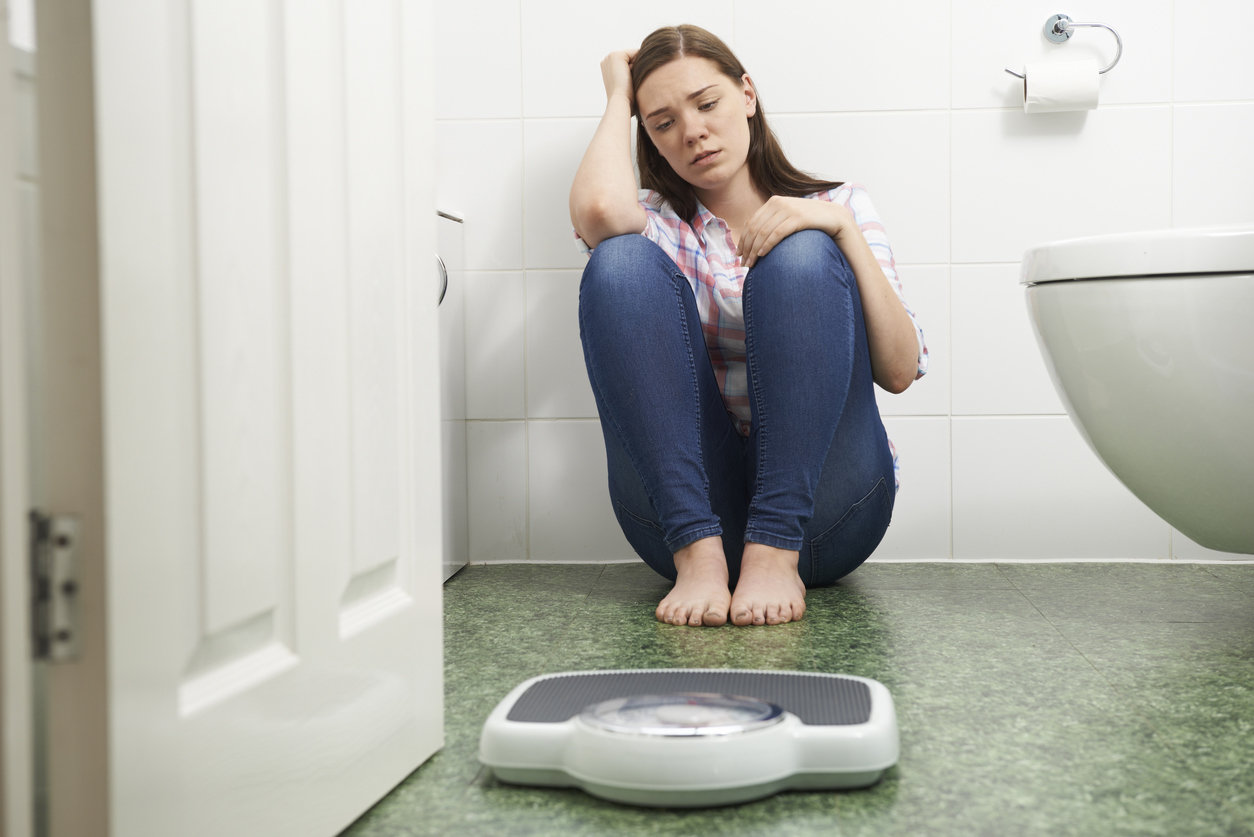The United Kingdom-based diet plan is popular because it isn’t as restrictive as other diets, according to Skwarecki. For instance, the Whole30 Diet asks dieters to eliminate all grains, legumes, dairy, and foods deemed “psychologically unhealthy,” like smoothies, for 30 days. The 5:2 Diet, however, employs “intermittent fasting” with the promise of a “longer, healthier life.” “Since you are only fasting for two days of your choice each week, and eating normally on the other five days, there is always something new and tasty on the near horizon,” the 5:2 Diet’s website explains. “In short, it’s easy to comply with a regime that only asks you to restrict your calorie intake occasionally. It re-calibrates the diet equation, and stacks the odds in your favor.” No matter how mild the 5:2 Diet is purported to be, however, it is as dangerous as all fad diets. “Caloric intake is based on someone’s age, weight, height, biological sex, and then also their activity level,” she told Revelist. “[Activity level is] the one that ranges the most because you can have someone who’s on a sports team or works out a ton and you can have someone who’s walking and doing light weightlifting. So, there’s a whole range of caloric needs per person and lot of factors that play a part in that.” The 5:2 Diet doesn’t account for those variable factors. Instead, it presupposes that all men and women — regardless of activity level, age, and weight — can survive on 2,000 or 2,400 calories. “By no means is [500 or 600 calories] enough to maintain all the processes that our bodies need to do throughout the day,” she said. “What happens is if somebody eats on a low-range calorie diet is they eat those few calories, so their metabolism slows down. When they go back to eating how they normally do, it’s easier to gain weight. That’s the basic metabolic science behind it.” Fad diets also don’t encourage participants to adopt habits that sustain weight loss. “The 5:2 Diet, the Atkins Diet, or any fasting diet is not sustainable,” Hastings said. “You can’t keep eating like that. [Fad diets] don’t teach you how to have balanced meals or fun meals or it’s OK to eat higher-calorie foods sometimes or about exercise. They don’t drag in any of that.” “As far as I can tell, the 5:2 fast is another misguided fad diet with potentially life-threatening consequences,” Mysko said. “The rigidity and drastic calorie restriction promoted in the ‘5:2 Fast Diet’ are certainly reminiscent of the kind of ‘diets’ I’ve seen circulated in pro-eating disorders communities and I would not recommend anyone engage in these kinds of behaviors,” she said. Fasting might also encourage binging or overeating because the body needs nutrients to sustain itself. “When you start eating on the first day of the next five-daycycle, you might be eating quicker, making high-carb, high-sugar choices because you’ve basically starved yourself for two days,” she said. “That’s not how humans are supposed to eat.” There’s nothing wrong with wanting to lead a healthier life. Fad diets, including the 5:2 Diet, isn’t a means of achieving health-related goals. Revelist has reached out to the creators of the 5:2 Diet for comment.






title: “The 5 2 Diet Is Dangerous And Encourages Disordered Eating” ShowToc: true date: “2024-10-06” author: “Maria Filas”
The United Kingdom-based diet plan is popular because it isn’t as restrictive as other diets, according to Skwarecki. For instance, the Whole30 Diet asks dieters to eliminate all grains, legumes, dairy, and foods deemed “psychologically unhealthy,” like smoothies, for 30 days. The 5:2 Diet, however, employs “intermittent fasting” with the promise of a “longer, healthier life.” “Since you are only fasting for two days of your choice each week, and eating normally on the other five days, there is always something new and tasty on the near horizon,” the 5:2 Diet’s website explains. “In short, it’s easy to comply with a regime that only asks you to restrict your calorie intake occasionally. It re-calibrates the diet equation, and stacks the odds in your favor.” No matter how mild the 5:2 Diet is purported to be, however, it is as dangerous as all fad diets. “Caloric intake is based on someone’s age, weight, height, biological sex, and then also their activity level,” she told Revelist. “[Activity level is] the one that ranges the most because you can have someone who’s on a sports team or works out a ton and you can have someone who’s walking and doing light weightlifting. So, there’s a whole range of caloric needs per person and lot of factors that play a part in that.” The 5:2 Diet doesn’t account for those variable factors. Instead, it presupposes that all men and women — regardless of activity level, age, and weight — can survive on 2,000 or 2,400 calories. “By no means is [500 or 600 calories] enough to maintain all the processes that our bodies need to do throughout the day,” she said. “What happens is if somebody eats on a low-range calorie diet is they eat those few calories, so their metabolism slows down. When they go back to eating how they normally do, it’s easier to gain weight. That’s the basic metabolic science behind it.” Fad diets also don’t encourage participants to adopt habits that sustain weight loss. “The 5:2 Diet, the Atkins Diet, or any fasting diet is not sustainable,” Hastings said. “You can’t keep eating like that. [Fad diets] don’t teach you how to have balanced meals or fun meals or it’s OK to eat higher-calorie foods sometimes or about exercise. They don’t drag in any of that.” “As far as I can tell, the 5:2 fast is another misguided fad diet with potentially life-threatening consequences,” Mysko said. “The rigidity and drastic calorie restriction promoted in the ‘5:2 Fast Diet’ are certainly reminiscent of the kind of ‘diets’ I’ve seen circulated in pro-eating disorders communities and I would not recommend anyone engage in these kinds of behaviors,” she said. Fasting might also encourage binging or overeating because the body needs nutrients to sustain itself. “When you start eating on the first day of the next five-daycycle, you might be eating quicker, making high-carb, high-sugar choices because you’ve basically starved yourself for two days,” she said. “That’s not how humans are supposed to eat.” There’s nothing wrong with wanting to lead a healthier life. Fad diets, including the 5:2 Diet, isn’t a means of achieving health-related goals. Revelist has reached out to the creators of the 5:2 Diet for comment.






title: “The 5 2 Diet Is Dangerous And Encourages Disordered Eating” ShowToc: true date: “2024-10-19” author: “Mark Trudeau”
The United Kingdom-based diet plan is popular because it isn’t as restrictive as other diets, according to Skwarecki. For instance, the Whole30 Diet asks dieters to eliminate all grains, legumes, dairy, and foods deemed “psychologically unhealthy,” like smoothies, for 30 days. The 5:2 Diet, however, employs “intermittent fasting” with the promise of a “longer, healthier life.” “Since you are only fasting for two days of your choice each week, and eating normally on the other five days, there is always something new and tasty on the near horizon,” the 5:2 Diet’s website explains. “In short, it’s easy to comply with a regime that only asks you to restrict your calorie intake occasionally. It re-calibrates the diet equation, and stacks the odds in your favor.” No matter how mild the 5:2 Diet is purported to be, however, it is as dangerous as all fad diets. “Caloric intake is based on someone’s age, weight, height, biological sex, and then also their activity level,” she told Revelist. “[Activity level is] the one that ranges the most because you can have someone who’s on a sports team or works out a ton and you can have someone who’s walking and doing light weightlifting. So, there’s a whole range of caloric needs per person and lot of factors that play a part in that.” The 5:2 Diet doesn’t account for those variable factors. Instead, it presupposes that all men and women — regardless of activity level, age, and weight — can survive on 2,000 or 2,400 calories. “By no means is [500 or 600 calories] enough to maintain all the processes that our bodies need to do throughout the day,” she said. “What happens is if somebody eats on a low-range calorie diet is they eat those few calories, so their metabolism slows down. When they go back to eating how they normally do, it’s easier to gain weight. That’s the basic metabolic science behind it.” Fad diets also don’t encourage participants to adopt habits that sustain weight loss. “The 5:2 Diet, the Atkins Diet, or any fasting diet is not sustainable,” Hastings said. “You can’t keep eating like that. [Fad diets] don’t teach you how to have balanced meals or fun meals or it’s OK to eat higher-calorie foods sometimes or about exercise. They don’t drag in any of that.” “As far as I can tell, the 5:2 fast is another misguided fad diet with potentially life-threatening consequences,” Mysko said. “The rigidity and drastic calorie restriction promoted in the ‘5:2 Fast Diet’ are certainly reminiscent of the kind of ‘diets’ I’ve seen circulated in pro-eating disorders communities and I would not recommend anyone engage in these kinds of behaviors,” she said. Fasting might also encourage binging or overeating because the body needs nutrients to sustain itself. “When you start eating on the first day of the next five-daycycle, you might be eating quicker, making high-carb, high-sugar choices because you’ve basically starved yourself for two days,” she said. “That’s not how humans are supposed to eat.” There’s nothing wrong with wanting to lead a healthier life. Fad diets, including the 5:2 Diet, isn’t a means of achieving health-related goals. Revelist has reached out to the creators of the 5:2 Diet for comment.





